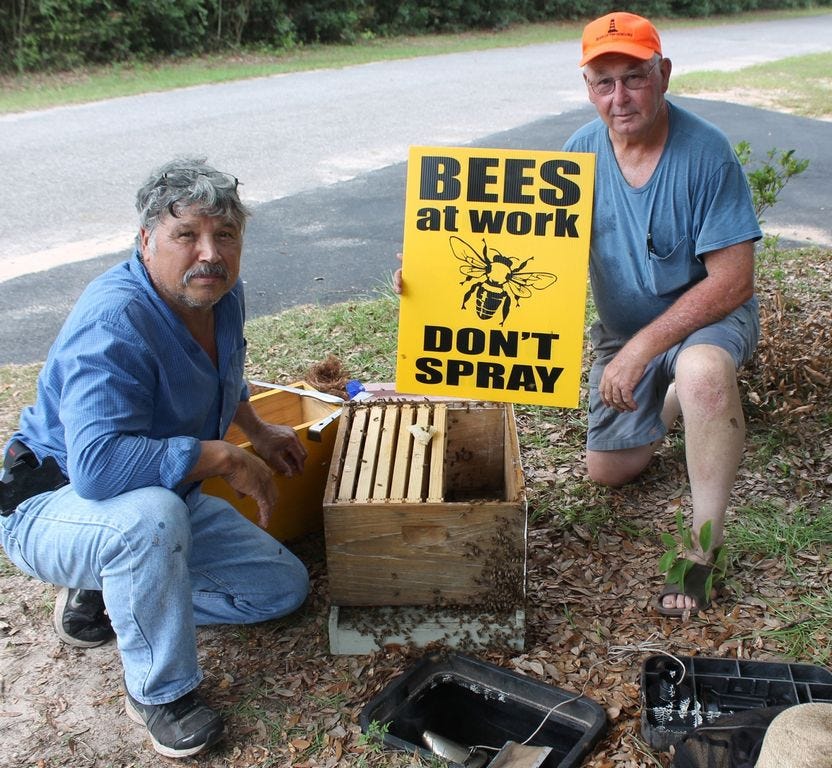
As more than just the adorable mascot of Honey Nut Cheerios, the honey bee, according to United States Department of Agriculture, is responsible for a third of the food on American’s dinner plates. However, the USDA reports over the last 75 years the number of managed bee colonies has dropped from five million in the 1940s to 2.5 million today and due to new pathogens in pests since the 1980s, annual colony losses from the winter of 2006 to 2011 averaged about 33 percent a year. In Santa Rosa County, several beekeeping groups have a message to help these vital purveyors of sweetness in two words: Don’t spray. They want Santa Rosa County citizens to know if they suspect a honey bee hive or swarm is on their property, they shouldn’t kill them, but let a honeybee group safely rescue them.
Tuesday and Wednesday of this week, Santa Rosa Beekeepers Association (SRBA) Vice President Bill Blankenship did exactly this, rescuing bees from private property. Tuesday, he and Pascual Reyes of Reyes Farms in Pace, responded to a call from the water company about a hive of bees in a water meter at a property on Cheyenne Drive in Milton. To calm the bees during the removal process, Reyes used a smoker, a metal container allowing smoke through a hole in the lid and filled with wood and straw on fire. The smoker keeps oxygen flowing to the fire and pumps smoke out of the top. Blankenship said smoke confuses the bees and disrupts the attack pheromone. In this state, the beekeeper can use a simple cup to scoop bees from their intrusive location and into a beehive box.
Wednesday, Blankenship and Leslie Watson, a new member to the SRBA, handled what Blankenship called a cutout at a property on Sellers Drive behind Milton High School. The bees at this property had created about seven feet of honeycomb in the frame of a wooden shed. Once Blankenship removed a wooden panel, the comb was visible through large gaps in the tar paper. Blankenship and Watson used more aggressive methods here. Both had to wear the full beekeeper suit with the classic beekeeper’s bonnet. They also employed a shop vacuum with a bee box between the hose and the vacuum base to capture the bees as they worked.
Blankenship said beekeepers can sell honey, but there’s no real money in it. It’s a hobby, he said. He did note bees are now considered livestock according to the federal government. As important as bees are to US agriculture, he said it’s important residents do not kill them but let a professional come take them. If readers suspect a bee hive or swarm is nearby, they can contact Blankenship at 232-6005. Anyone is welcome to attend SRBA meetings as well at 7 p.m. at Bay Area Vineyard Church, 5163 Dogwood Drive in Milton.
This article originally appeared on Santa Rosa Press Gazette: Wranglin' the wild honeybee
